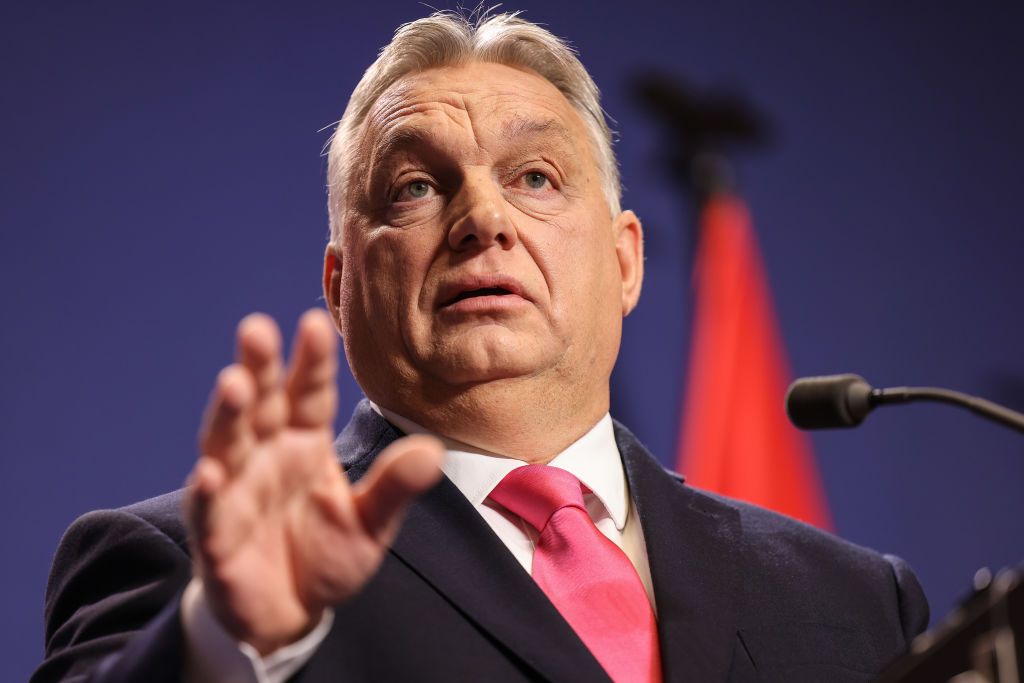Mass protests in Hungary over child sex abuse scandal

Tens of thousands of people protested in Budapest on Feb. 16 over a child sex abuse scandal that has rocked the government of Hungarian Prime Minister Viktor Orban and caused a series of resignations.
The wave of discontent arose after it was revealed that President Katalin Novak, who resigned on Feb. 10, pardoned a man convicted of covering up widespread sex abuse at a government-run children's home.
Justice Minister Judit Varga resigned soon after, and furious accusations and infighting have since broken out within Orban's ruling Fidesz party, with some calling for Orban's resignation.
The BBC and other outlets have characterized the ongoing scandal as Orban's "biggest challenge in 14 years of uninterrupted Fidesz rule."
Large crowds demonstrated on Feb. 16 in an expansion of the growing movement. The BBC reported that those gathered were mostly young people protesting "against the abuse and neglect of children and for social solidarity."
Orban has largely remained silent on the issue, but he is scheduled to deliver a state of the nation address later on Feb. 17.
As the backlash has grown, the scandal has expanded beyond the controversial pardon into direct criticism of Orban's government and associated cronyism and corruption.
Former Orban ally and Varga's ex-husband, Peter Magyar, released a widely viewed video on Facebook on Feb. 11 denouncing corruption in Fidesz and across Hungary.
"It must be said now that this cannot go on," Magyar said, rhetorically questioning whether Hungarians think it is "normal" that "a few families own half the country."
Hungarian opposition leaders gathered in front of the prime minister's office on Feb. 15, denouncing Orban's silence on the issue and saying it indicated deeper structural problems within Fidesz.
Hungary and Ukraine have had a contentious relationship that has worsened since the beginning of Russia's full-scale invasion. Orban has maintained close ties with Russia, bucking the united front that the EU has tried to present in support of Ukraine.
Hungary has repeatedly opposed Ukraine’s accession to NATO and the European Union and blocked the EU's financial support for Ukraine. Orban previously said that Ukraine is a financially "non-existent" and "no longer sovereign" state due to its "dependence" on international support.
Orban blocked a 50 billion euro ($54 billion) EU financial aid package for Ukraine during an EU summit last December. Orban dropped his opposition to the four-year support package on Feb. 1, explaining his reversal on the grounds that a control mechanism would supposedly ensure that Hungary's funds "will not end up in Ukraine."













